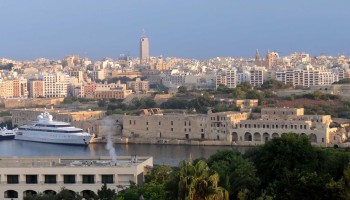Complaints filed in the form of text, photographs and videos are combined into an interactive map showing the concentration and locations of election complaints. The crowdsourcing web portal has been created using the open source Ushahidi platform. The Ushahidi platform was first used to document the violence around Kenya’s controversial 2007 presidential election and has since been used in disaster relief situations, such as the 2010 earthquake in Haiti and the 2010 wildfires in Russia
The Bulgarian website is sponsored by the Bulgarian-based Institute for Public Environment Development, according to the website.
Users can document alleged election violations via e-mail, twitter, text message, or on the website itself will also be directed to the Prosecutor’s Office to file an official complaint.
Website administrators say they will ensure that the platform is not abused by verifying the allegations uploaded by complainants. Any entry that has not been investigated and confirmed by the platform will be marked “unconfirmed.”
Although experts and monitors considered the 2006 general elections free and fair, trends following those elections revealed electoral irregularities. In its annual Human Rights report, U.S. State Department officials said that the local elections in October 2007 were “marred by reports of unprecedented vote buying,” at a cost estimated at $149.3 million (200 million leva) by the Center for the Study of Democracy.
According to the 2007 report, a “surge” in the practice of the organized transport of voters from Turkey and Macedonia, known as “voter tourism,” was “prompted by efforts of business circles and organized crime figures to install local politicians as a way to gain greater access to expected EU funds.”
The Human Rights Report for 2009 estimated that 10 to 16 percent of the votes in the June 12 European Parliament election had been purchased or manipulated. The report also says that voter tourism rose to unprecedented levels. State department officials said businessmen and organized crime figures bussed in voters who received “received money, food, and a free excursion in exchange for voting outside their districts.”





